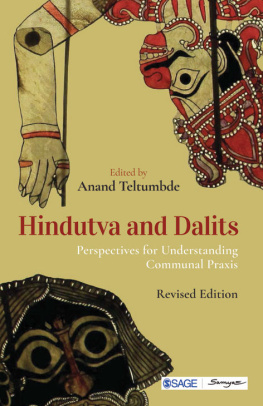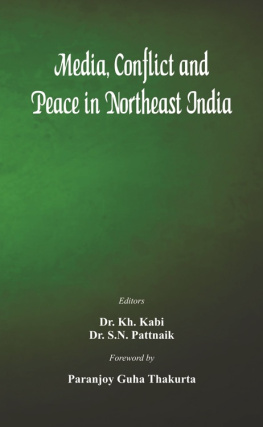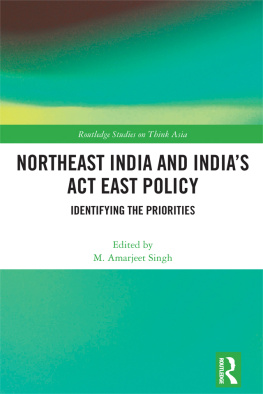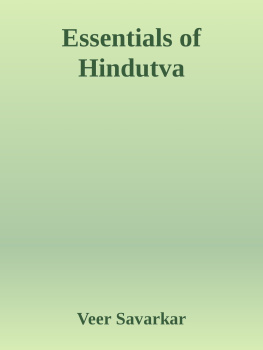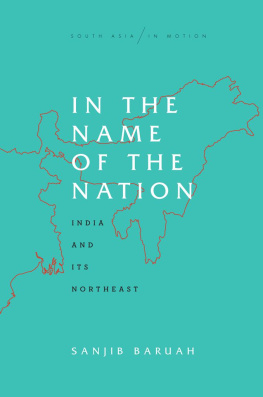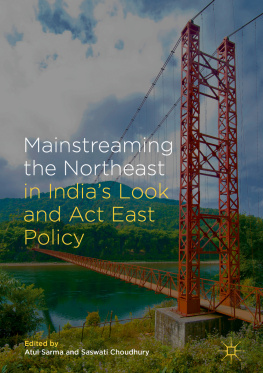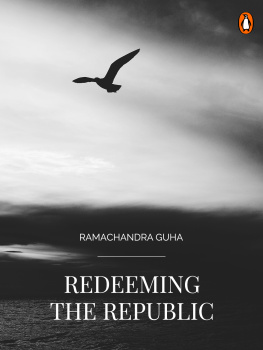Arkotong Longkumer - The greater India experiment: Hindutva and the Northeast
Here you can read online Arkotong Longkumer - The greater India experiment: Hindutva and the Northeast full text of the book (entire story) in english for free. Download pdf and epub, get meaning, cover and reviews about this ebook. year: 2020, publisher: Stanford University Press, genre: Politics. Description of the work, (preface) as well as reviews are available. Best literature library LitArk.com created for fans of good reading and offers a wide selection of genres:
Romance novel
Science fiction
Adventure
Detective
Science
History
Home and family
Prose
Art
Politics
Computer
Non-fiction
Religion
Business
Children
Humor
Choose a favorite category and find really read worthwhile books. Enjoy immersion in the world of imagination, feel the emotions of the characters or learn something new for yourself, make an fascinating discovery.

- Book:The greater India experiment: Hindutva and the Northeast
- Author:
- Publisher:Stanford University Press
- Genre:
- Year:2020
- Rating:4 / 5
- Favourites:Add to favourites
- Your mark:
- 80
- 1
- 2
- 3
- 4
- 5
The greater India experiment: Hindutva and the Northeast: summary, description and annotation
We offer to read an annotation, description, summary or preface (depends on what the author of the book "The greater India experiment: Hindutva and the Northeast" wrote himself). If you haven't found the necessary information about the book — write in the comments, we will try to find it.
The greater India experiment: Hindutva and the Northeast — read online for free the complete book (whole text) full work
Below is the text of the book, divided by pages. System saving the place of the last page read, allows you to conveniently read the book "The greater India experiment: Hindutva and the Northeast" online for free, without having to search again every time where you left off. Put a bookmark, and you can go to the page where you finished reading at any time.
Font size:
Interval:
Bookmark:
ARKOTONG LONGKUMER
THE GREATER INDIA EXPERIMENT
Hindutva and the Northeast
STANFORD UNIVERSITY PRESS
STANFORD, CALIFORNIA
Stanford University Press
Stanford, California
2021 by the Board of Trustees of the Leland Stanford Junior University. All rights reserved.
No part of this book may be reproduced or transmitted in any form or by any means, electronic or mechanical, including photocopying and recording, or in any information storage or retrieval system without the prior written permission of Stanford University Press.
Printed in the United States of America on acid-free, archival-quality paper
Library of Congress Cataloging-in-Publication Data
Names: Longkumer, Arkotong, author.
Title: The greater India experiment : Hindutva and the northeast / Arkotong Longkumer.
Other titles: South Asia in motion.
Description: Stanford, California : Stanford University Press, 2021. | Series: South Asia in motion | Includes bibliographical references and index.
Identifiers: LCCN 2020019950 (print) | LCCN 2020019951 (ebook) | ISBN 9781503613461 (cloth) | ISBN 9781503614222 (paperback) | ISBN 9781503614239 (epub)
Subjects: LCSH: Sangh Parivar. | HindutvaIndia, Northeastern. | Hinduism and politicsIndia, Northeastern. | NationalismIndia, Northeastern. | HinduismIndia, NortheasternRelations. | India, NortheasternPolitics and government.
Classification: LCC DS482.8 .L66 2021 (print) | LCC DS482.8 (ebook) | DDC 320.55dc23
LC record available at https://lccn.loc.gov/2020019950
LC ebook record available at https://lccn.loc.gov/2020019951
Cover photo: Mural commissioned for the Tribal Heritage Museum, Rajiv Gandhi University, removed and relocated to the balcony of the Museum due to criticism that it resembled a Hindu deity. Arunachal Institute of Tribal Studies and the Tribal Heritage Museum.
Typeset by Westchester Publishing Services in 10.75/15 Adobe Caslon
SOUTH ASIA IN MOTION
EDITOR
Thomas Blom Hansen
EDITORIAL BOARD
Sanjib Baruah
Anne Blackburn
Satish Deshpande
Faisal Devji
Christophe Jaffrelot
Naveeda Khan
Stacey Leigh Pigg
Mrinalini Sinha
Ravi Vasudevan
CONTENTS
ACKNOWLEDGMENTS
Working as an anthropologist in Northeast India for over a decade has been an exciting and challenging journey of discovery. Returning regularly to the region brings to mind the many people I have encountered along the way and the depth of gratitude I owe them.
Never did I imagine myself working on the Hindu right, let alone their activities in the Northeast. Many thought I was barking up the wrong tree, others were mildly amused, while some wondered if the presence of the Hindu right (with its singular drive to make India Hindu) signaled the gradual demise of the kind of independence and stubbornness that characterized a region with a rich history. This book will hopefully assuage some of the critics, generate debate, and raise questions about the future of the Hindu right and the Northeast.
My first encounter with the Hindu right was during the period of my PhD fieldwork (200405) in Haflong and Laisong in the Dima Hasao District of Assam. I was intrigued by their commitment to teach in village schools run by the Vishwa Hindu Parishad. Interacting with them made me realize their ambition to extend their activities all over the region. Over time, I could see their ambition gradually spreading and gaining momentum. This book is an attempt to capture their metamorphosis, which has made them into the most important force in contemporary India.
I was fortunate to receive a British Academy Mid-Career Fellowship (201718; grant no. MD170012), which truly kick-started parts of the research and the writing. I am grateful to the fellowship committee for recognizing the importance of this project and for allowing me the freedom to think and write when so much of our time in academia is curtailed by other tasks. I am also grateful to the Arctic University of Norway, Troms, for inviting me as a visiting fellow for three months in 2019. The warm and friendly environment allowed me the time to finish the manuscript. I am especially grateful to Siv Ellen Kraft and Bjrn Ola Tafjord for making the visit possible. I am also grateful to the School of Divinity at the University of Edinburgh for their support, particularly colleagues in religious studies who had to shoulder much of the burden when I was away. My thanks to Naomi Appleton, Hannah Holtschneider, and Steven Sutcliffe. Shruti Chaudhry was appointed as teaching fellow, and my thanks to her for taking on the teaching responsibilities during my absence.
Thomas Blom Hansen first invited a book proposal for the Stanford University Press series South Asia in Motion. My thanks to him and the acquisitions editor Marcela Cristina Maxfield, the editorial assistant Sunna Juhn, and the production team for shepherding this process and for their professionalism. Where would academic publishing be without anonymous referees? My deepest gratitude to the reviewers for their time and engagement with the manuscript and for providing insightful suggestions that have hopefully made the book better. As I was finalizing the manuscript for publication, the Citizenship Amendment Bill (2016) became the Citizenship Amendment Act (2019). The analysis in the book is based on the bill and not the act (though they are the same in principle). A version of was published as The Power of Persuasion: Hindutva, Christianity, and the Discourse of Religion and Culture in Northeast India, Religion 47, no. 2 (2017): 20327. My thanks to the publishers for their permission in allowing me to reproduce revised versions for the book.
Without the participation of the many Sangh Parivar activists, this book would not have been possible. I thank them and the number of allies and sympathizers to their cause who opened doors for me when sometimes I had to knock at least a few times. I know you wont want me to divulge your names but am grateful to you and for showing me respect amid the tumultuous political climate. I disagreed with the Sangh Parivar activists when we discussed their work or when they sought opinions or questions about their work, and we debated (sometimes heatedly!) about their ideology.
Aheli Moitra joined me on the last leg of my research to understand the aftermath of the state elections in Assam, Meghalaya, Nagaland, and Tripura when the Bharatiya Janata Party (BJP) entered the electoral map in a large way. Her work as an independent journalist (and now a PhD student) and her understanding of the political landscape have been invaluable. The work and support she provided in interviews, transcription, and analysis have been second to none, and I want to express my indebtedness to her. Many people all over the region welcomed me, and I am particularly grateful to Zilpha Modi (in Itanagar), who provided a home in Arunachal and introduced me to her vast network of friends and colleagues, and for taking me all the way to her hometown of Pashigat. Many thanks to Wanglit Mongchan in whose car we listened to Hindi music (surprised that I hadnt heard of any of them) all the way to Pashigat; to Jumyir Basar, who invited me to give a talk at Rajiv Gandhi University; and to Lisa Lomdak and Tarun Mene for answering many questions about Hindutva politics. Their work in the Arunachal Institute of Tribal Studies is a source of inspiration. In Guwahati, Xonzoi Barbora provided intellectual curiosity and company over plenty a dram, and my thanks go to R. K. Debbarma, who introduced me to his friends and networks in Agartala (Tripura). In Shillong, Margaret Lyngdoh went out of her way to help, and I must thank Tarun Bhartiya and the Raiot collective for challenging the consensus. In Agartala, Upen Debbarmas knowledge of indigenous politics and his network as a student activist showed me the intricacies of Tripura politics that would have been otherwise impossible to discern. He and his family organized lunch with other Indigenous Peoples Front of Tripura (IPFT) activists at his home, and I was humbled by their involvement in creating a better future for their movement. B. K. Hrangkhawl hosted me, and I remain indebted to him for sharing his time and his long-term commitment to the cause of indigenous peoples issues in Tripura. In Nagaland, I am thankful to the Sumi Alakishi Kighinimi for welcoming me with such open arms and for sharing the prophecy files with me. Your vision of what is possible has pushed me to think seriously about indigenous futures. My gratitude too to V. K. Nuh, Zelhou Keyho, Akm Longchari, Monalisa Chankija, Rosemary Dzuvichu, and Wati Aier for entertaining my difficult questions and for always providing encouragement.
Next pageFont size:
Interval:
Bookmark:
Similar books «The greater India experiment: Hindutva and the Northeast»
Look at similar books to The greater India experiment: Hindutva and the Northeast. We have selected literature similar in name and meaning in the hope of providing readers with more options to find new, interesting, not yet read works.
Discussion, reviews of the book The greater India experiment: Hindutva and the Northeast and just readers' own opinions. Leave your comments, write what you think about the work, its meaning or the main characters. Specify what exactly you liked and what you didn't like, and why you think so.


